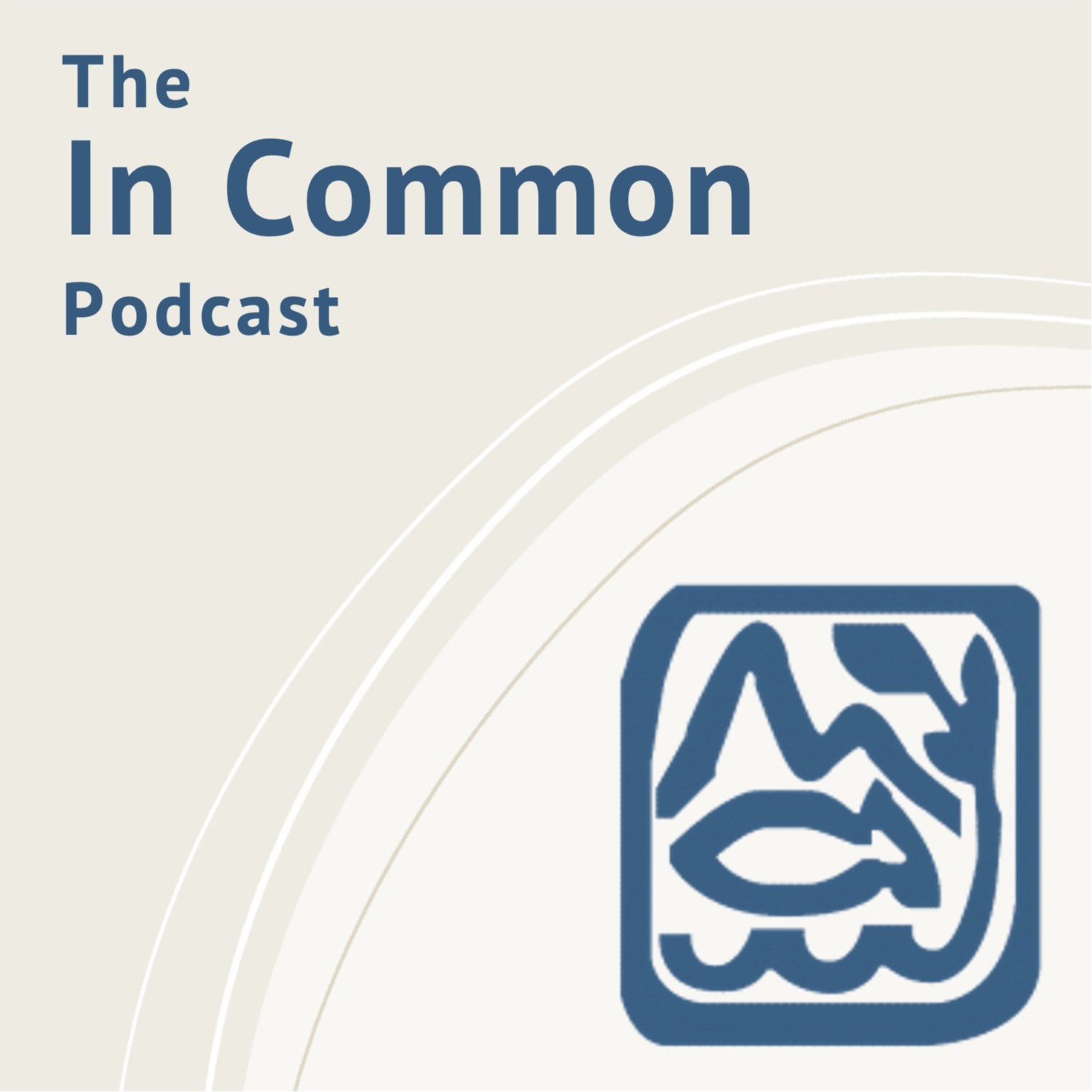
105.2K
Downloads
238
Episodes
In Common explores the connections between humans, their environment and each other through stories told by scholars and practitioners. In-depth interviews and methods webinars explore interdisciplinary and transdisciplinary work on commons governance, conservation and development, social-ecological resilience, and sustainability.
In Common explores the connections between humans, their environment and each other through stories told by scholars and practitioners. In-depth interviews and methods webinars explore interdisciplinary and transdisciplinary work on commons governance, conservation and development, social-ecological resilience, and sustainability.
Episodes
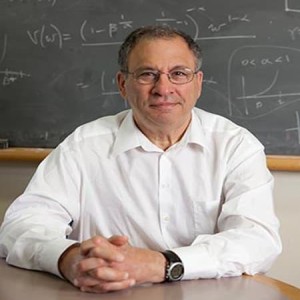
Monday Feb 28, 2022
087: Complexity and the commons with Simon Levin
Monday Feb 28, 2022
Monday Feb 28, 2022
In this episode, Michael speaks with Simon Levin, professor of Ecology and Evolutionary Biology at Princeton University. Simon is a giant in the field of ecology, and in the last several decades his work has extended to the study of the social-ecological systems, cooperation, and the governance of the commons. His work in this area includes the book Fragile Dominion: Complexity and the Commons, which is a great introduction to Simon’s ideas on society and ecology for non-experts. Simon talks with Michael about his views on the commons as well as a range of topics including climate change, the COVID pandemic, biological and cultural evolution, and interdisciplinary collaboration.
Simon’s website: https://slevin.princeton.edu/
References:
Levin, S. 1999. Fragile Dominion: Complexity and the Commons. Perseus Books.
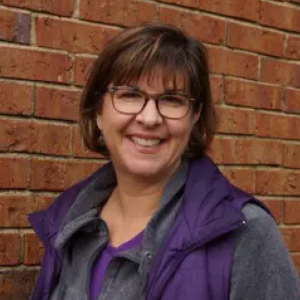
Friday Feb 18, 2022
Insight #32: Helen Rozwadowski on the ocean as a mirror
Friday Feb 18, 2022
Friday Feb 18, 2022
This insight episode is from full episode eight, Michael and Stefan's conversation with Helen Rozwadowski.
Helen is a professor of History and founder of the Maritime Studies program at the University of Connecticut, and has written multiple books on the history of the ocean.
In this episode, Helen discusses the idea of the ocean as a mirror, reflecting our personal biases and ideas back to us. She also discusses the importance of understanding the past in informing the present, and how history can influence current research.
Helen's website: https://history.uconn.edu/faculty-by-name/helen-m-rozwadowski/
In Common website: https://www.incommonpodcast.org
Connect with us on Twitter: https://twitter.com/InCommonPod
Support us on Patreon: https://www.patreon.com/incommonpodcast
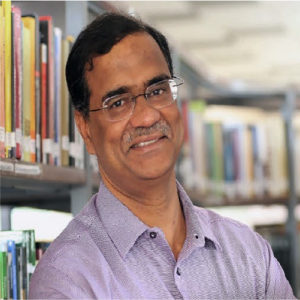
Monday Feb 07, 2022
086: Environmental history with Mahesh Rangarajan
Monday Feb 07, 2022
Monday Feb 07, 2022
In this episode Hita spoke with Prof. Mahesh Rangarajan, Vice Chancellor of Krea University, India and a Professor of History and Environmental Studies at the University. They discussed what it means to be a historian, the importance of intellectual exchange and cooperation across different stages of career, and the environmental history of large charismatic mammals in south Asia. Some non-English words that occur through the episode include:
- Padyatra: A journey undertaken by foot, usually with some social purpose behind it
- Pindaris: Thugs or bandits as referred to in colonial literature
- Valmiki Ramayana: An epic poem of India, revolving around the story of Rama and Sita, and composed by a sage named Valmiki
- Apharan: Kidnap
- Haathi mere saathi: (Translation: My friend, the elephant) a yesteryear Bollywood movie revolving around the friendship between an elephant and its human
- Junagadh, Bhavnagar, Baroda: Erstwhile princely states of India
- Yuvraj: Younger prince, not the heir apparent
- Bengalis: People from the eastern Indian state of Bengal
- Ghee: clarified butter
- Ser: Obsolete unit of dry volume of India, often considered equivalent to a litre
Mahesh’s institutional website: https://krea.edu.in/mahesh-rangarajan-phd/
References mentioned in the interview:
- Keen, Maurice. 2000. The outlaws of medieval legend. 3rd edition. Routledge.
- Simon Schama on libraries: https://talking-about-books.com/2016/07/06/simon-schama-on-the-london-library-financial-times/
- Trauttman, Thomas R. 2015. Elephants and kings: an environmental history. University of Chicago Press.
- Elvin, Mark. 2006. The retreat of the elephants: an environmental history of China. Yale University Press.
- Chaudhuri, Nirad Singh. 1951. Autobiography of an unknown Indian. Macmillan
- Demuth, Bathsheba. 2020. Floating coast: an environmental history of the Bering Strait. WW Norton.
- Corbett, Jim. 1948. The man-eating tiger of Rudraprayag. Rupa Publications
- Sankhala, Kailash. 1971. The story of the Indian tiger. Collins.
- Guha, Ramachandra. 1989. The unquiet woods: ecological change and peasant resistance in the Himalaya. University of California Press.
- Rangarajan, M. 2013. Animals with rich histories: the case of the lions of Gir Forest, Gujarat, India. History and Theory 52:4 (109-127).
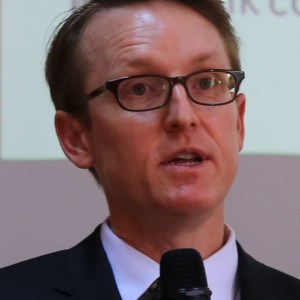
Friday Feb 04, 2022
Insight #31: Chris Weible on the value of studying the policy process
Friday Feb 04, 2022
Friday Feb 04, 2022
This insight episode is from episode 041, Michael's interview with Chris Weible.
Chris is a professor at the school of public affairs at the University of Colorado, Denver, as well as the director of his school's PhD program, and a co-director with Tanya Heikkila of the Workshop on Policy Process Research (WOPPR).
In this insight episode, Chris talks with Michael about the evolution of the field of policy processes, and the importance of studying the policy process to better understand society and people better.
Chris' website: https://publicaffairs.ucdenver.edu/people/faculty/christopher-weible
WOPRR website: https://publicaffairs.ucdenver.edu/research-and-impact/workshop-on-policy-process-research
In Common Website: www.incommonpodcast.org
Connect with us on Twitter: https://twitter.com/InCommonPod
Support us on Patreon: https://www.patreon.com/incommonpodcast
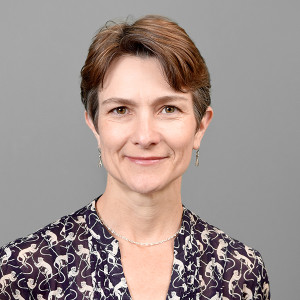
Monday Jan 31, 2022
085: Vulnerability and adaptation with Hallie Eakin
Monday Jan 31, 2022
Monday Jan 31, 2022
In this episode, Michael speaks with Hallie Eakin, a professor in the School of Sustainability, College of Global Futures at Arizona State University. They discuss Hallie’s research on social adaptation and vulnerability in Mexico, Latin America, and the American Southwest.
Hallie’s website: https://sustainability-innovation.asu.edu/person/hallie-eakin/
Website for the megadapt project: http://megadapt.weebly.com/
References
Eakin, Hallie, et al. 2016. “Adapting to Risk and Perpetuating Poverty: Household’s Strategies for Managing Flood Risk and Water Scarcity in Mexico City.” Environmental Science & Policy 66 (December): 324–33.
Book that Michael mentions on academic norms: Berg, Maggie, and Barbara K. Seeber. 2016. The Slow Professor: Challenging the Culture of Speed in the Academy. University of Toronto Press.
Book by James Ferguson that Michael mentions: Ferguson, James. 1990. The Anti-Politics Machine: ’development', Depoliticization and Bureaucratic Power in Lesotho. University of Minnesota Press.
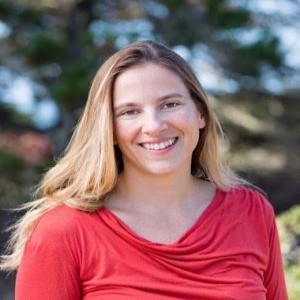
Friday Jan 28, 2022
Friday Jan 28, 2022
This insight episode is from episode 041, Michael and Courtney's interview with Cassandra Brooks.
Cassandra is an assistant professor of environmental studies at the University of Colorado, Boulder. Prior to joining CU Boulder, Cassandra was a core member of The Last Ocean, a grand-scale media project focused on the Ross Sea, and her efforts helped lead to the adoption of the world's largest marine protected area in the Ross Sea, Antarctica.
In this insight episode, Cassandra talks with Michael and Courtney about her work to establish marine protected areas in the Southern Ocean, and the complicated nature of international geopolitics.
Cassandra's homepage: https://www.colorado.edu/envs/cassandra-brooks
A recent paper by Cassandra and colleagues on the policy development process in the Antarctic:
Brooks, C.M., L.B. Crowder, H. Österblom, and A. L. Strong. 2020. Reaching consensus for conserving the global commons: The case of the Ross, Sea, Antarctica. Conservation Letters 13(1):289.
In Common Website: www.incommonpodcast.org
Connect with us on Twitter: https://twitter.com/InCommonPod
Support us on Patreon: https://www.patreon.com/incommonpodcast
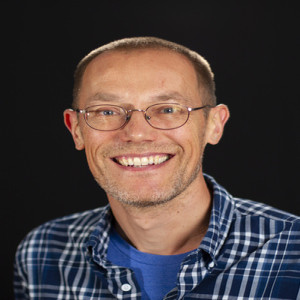
Monday Jan 24, 2022
084: Seeing like a Pastoralist with Mark Moritz
Monday Jan 24, 2022
Monday Jan 24, 2022
In this episode, Michael talks with Mark Moritz, professor of anthropology at the Ohio State University. They discuss Mark’s work on “open” property regimes in pastoralist systems around the world, and in particular in Cameroon where Mark has conducted extensive fieldwork. Mark describes his interpretation of open property regimes as an adaptation to resource scarcity and variability in pastoralist systems. This is a unique type of property regime that is less about imposing constraints than it is guaranteeing access, working in tandem with the well-known mobility of many pastoralists.
Mark’s website: https://anthropology.osu.edu/people/moritz.42
References
Moritz, M. (2016). Open property regimes. International Journal of the Commons, 10(2), 688.
Moritz, M., et al. 2018. Emergent Sustainability in Open Property Regimes. Proceedings of the National Academy of Sciences of the United States of America 115 (51): 12859–67.
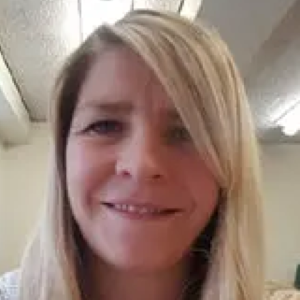
Friday Jan 21, 2022
Insight #29: Emma McKinley on the Marine Social Science Network
Friday Jan 21, 2022
Friday Jan 21, 2022
This insight episode is from episode 002, Michael and Stefan's interview with Emma McKinley.
Emma is a Research Fellow at Cardiff University and co-founder of the Marine Social Science Network.
In this insight episode, Emma talks with Michael and Stefan about the creation of the Marine Social Science Network and the growing pains of facilitating greater interdisciplinary work.
The Marine Social Science Network
In Common Website
Connect with us on Twitter
https://twitter.com/InCommonPod
Support us on Patreon
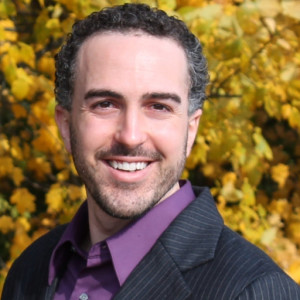
Tuesday Jan 18, 2022
083: Participatory governance with Daniel Decaro
Tuesday Jan 18, 2022
Tuesday Jan 18, 2022
In this episode, Michael spoke with Daniel Decaro, associate professor at the University of Louisville with a joint appointment in the Department of Urban and Public Affairs and the Department of Psychological and Brain Sciences. Daniel has conducted experimental research on the effects of participation and enforcement on collective-action. Based on this work, he has developed the concept of participatory fit. This represents the idea that there is cultural variation in how people perceive their basic needs of autonomy and procedural justice being met through a participatory process, and therefore mechanisms of participatory governance must adapt to fit with this variation. What is authentically participatory for one person may not be for another. Daniel and Michael also talked about the relationship that participation has to collective-action and enforcement, based on a finding from DeCaro et al. (2015) that the effects of participating and enforcement are synergistic, producing increased cooperation when combined with each other.
Daniel’s website: https://louisville.edu/psychology/d-decaro
References:
DeCaro, D., and M. Stokes. 2008. “Social‐psychological Principles of Community‐based Conservation and Conservancy Motivation: Attaining Goals within an Autonomy‐supportive Environment.” Conservation Biology: The Journal of the Society for Conservation Biology.
DeCaro, Daniel A., and Michael K. Stokes. 2013. “Public Participation and Institutional Fit: A Social-Psychological Perspective.” Ecology and Society 18 (4).
DeCaro, D. A., M. A. Janssen, and A. Lee. 2015. “Synergistic Effects of Voting and Enforcement on Internalized Motivation to Cooperate in a Resource Dilemma.” Judgment and Decision Making.
DeCaro, Daniel A., Marco A. Janssen, and Allen Lee. 2021. “Motivational Foundations of Communication, Voluntary Cooperation, and Self-Governance in a Common-Pool Resource Dilemma.” Current Research in Ecological and Social Psychology, no. 100016 (July): 100016.
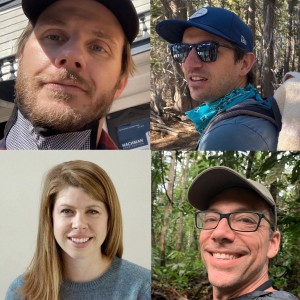
Tuesday Dec 28, 2021
Commoning # 9: That reminds me
Tuesday Dec 28, 2021
Tuesday Dec 28, 2021
In this end-of-the-year episode, Courtney, Mike, Michael and Stefan sat down to recap the year, talking about their favorite reads and favorite listens, fieldwork done and not done, and interesting work done on non-traditional commons.
References:
Chambers, J. M., et al. (2021). Six modes of co-production for sustainability. Nature Sustainability, 4(11), 983–996.
Christakis, N. A. (2019). Blueprint: The evolutionary origins of a good society. Hachette UK.
Epstein, D. (2019). Range: How Generalists Triumph in a Specialized World. Penguin Random House.
Freeth, R., and Caniglia, G. (2020). Learning to collaborate while collaborating: advancing interdisciplinary sustainability research. Sustainability Science, 15(1), 247–261.
Gorski, P. S. (2013). “What is Critical Realism? And Why Should You Care?” Contemporary Sociology, 42(5), 658–670.
Gottlieb, L. (2019). Maybe you should talk to someone. Manjul Publishing.
Kearns, F. (2021). Getting to the Heart of Science Communication: A Guide to Effective Engagement. Island Press.
Mott, J. (2021). Hell of a Book: A Novel. Penguin.
York, A. M., et al. (2021). Integrating institutional approaches and decision science to address climate change: a multi-level collective action research agenda. Current Opinion in Environmental Sustainability, 52, 19–26.
Podcasts:
Sam Harris:
https://www.samharris.org/podcasts/making-sense-episodes/270-what-have-we-learned-from-the-pandemic
https://www.samharris.org/podcasts/making-sense-episodes/269-deep-time
Esther Perel: https://www.estherperel.com/podcast
Wall Street Journal about uBiome: https://www.wsj.com/podcasts/the-journal/what-went-wrong-at-ubiome-part-1/8b0717aa-1c66-4524-b47f-0cd3a399fcae
